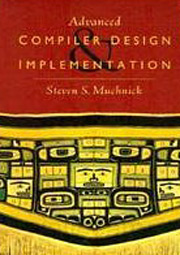
 The Essentials of Computer Organization And Architecture
The Essentials of Computer Organization And Architecture
Thoroughly Revised And Updated, The Essentials Of Computer Organization And Architecture, Second Edition Is A Comprehensive Resource That Addresses All Of The Necessary Organization And Architecture Topics Yet Is Concise Enough To Move Through In A Single Semester. The Text Covers Such Topics As Digital Logic, Data Representation, Machine-Level Language, General Organization, Assembly Language Programming, CPU Organization, Memory Organization, And Input/Output Devices, As Well As A New Chapter On Embedded Systems. Correlated To The ACM-IEEE Computing Curricula Guidelines, The Essentials Of Computer Organization And Architecture Is The Forefront Text For Your Computer Organization And Architecture Course.
 Code: The Hidden Language of Computer Hardware and Software
Code: The Hidden Language of Computer Hardware and Software
Charles Petzold's latest book, Code: The Hidden Language of Computer Hardware and Software, crosses over into general-interest nonfiction from his usual programming genre. It's a carefully written, carefully researched gem that will appeal to anyone who wants to understand computer technology at its essence. Readers learn about number systems (decimal, octal, binary, and all that) through Petzold's patient (and frequently entertaining) prose and then discover the logical systems that are used to process them. There's loads of historical information too. From Louis Braille's development of his eponymous raised-dot code to Intel Corporation's release of its early microprocessors, Petzold presents stories of people trying to communicate with (and by means of) mechanical and electrical devices.
 The iPhone Developer's Cookbook: Building Applications with the iPhone 3.0 SDK (2nd Edition)
The iPhone Developer's Cookbook: Building Applications with the iPhone 3.0 SDK (2nd Edition)
Want to get started building applications for Apple’s iPhone and iPod touch? Already building iPhone applications and want to get better at it? This is the only book that brings together all the expert guidance–and the code–you’ll need! Completely revised and expanded to cover the iPhone 3.0 SDK, The iPhone Developer’s Cookbook is the essential resource for developers building apps for the iPhone and iPod touch. Taking you further than before, this new edition starts out with an introduction to Objective-C 2.0 for developers who might be new to the platform. You’ll learn about Xcode and Interface Builder and learn how to set up and configure your iPhone Developer account
 Cocoa Design Patterns
Cocoa Design Patterns
Mac and iPhone developers are often overwhelmed by the breadth and sophistication of the Cocoa frameworks. Although Cocoa is indeed huge, once you understand the object-oriented patterns it uses, you’ll find it remarkably elegant, consistent, and simple. Cocoa Design Patterns begins with the mother of all patterns: the Model-View-Controller (MVC) pattern, which is central to all Mac and iPhone development. Encouraged, and in some cases enforced by Apple’s tools, it’s important to have a firm grasp of MVC right from the start.
 Cocoa Programming for Mac OS X (3rd Edition)
Cocoa Programming for Mac OS X (3rd Edition)
There's a reason that a large slice of the open-source movement has defected from running Linux on its laptops to running Mac OS X. The reason is the Unix core that underlies Mac OS X, and the development tools that run on that core. Cocoa makes it easy to create very slick Mac OS X interfaces for software (as well as to create applications in a hurry), and this new edition of Cocoa Programming for Mac OS X does an excellent job of teaching its readers how to put a Cocoa face on top of code (Objective-C code almost exclusively). If you know something about C and/or C++ programming and want to apply your skills to the Mac, this is precisely the book you want.
 Effective C++: 55 Specific Ways to Improve Your Programs and Designs (3rd Edition)
Effective C++: 55 Specific Ways to Improve Your Programs and Designs (3rd Edition)
This exceptionally useful text offers Scott Myers's expertise in C++ class design and programming tips. The second edition incorporates recent advances to C++ included in the ISO standard, including namespaces and built-in template classes, and is required reading for any working C++ developer. The book opens with some hints for porting code from C to C++ and then moves on to the proper use of the new and delete operators in C++ for more robust memory management. The text then proceeds to class design, including the proper use of constructors, destructors, and overloaded operator functions for assignment within classes. (These guidelines ensure that you will create custom C++ classes that are fully functional data types, which can be copied and assigned just like built-in C++ classes.)
 The Art of Assembly Language
The Art of Assembly Language
Assembly is a low-level programming language that's one step above a computer's native machine language. Although assembly language is commonly used for writing device drivers, emulators, and video games, many programmers find its somewhat unfriendly syntax intimidating to learn and use. Since 1996, Randall Hyde's The Art of Assembly Language has provided a comprehensive, plain-English, and patient introduction to assembly for non-assembly programmers. Hyde's primary teaching tool, High Level Assembler (or HLA), incorporates many of the features found in high-level languages (like C, C++, and Java) to help you quickly grasp basic assembly concepts. HLA lets you write true low-level code while enjoying the benefits of high-level language programming.
 Advanced Compiler Design & Implementation
Advanced Compiler Design & Implementation
This comprehensive, up-to-date work covers advanced issues in the design and implementation of compilers for modern processors, written for professionals and graduate students.
 A Retargetable C Compiler: Design and Implementation
A Retargetable C Compiler: Design and Implementation
Designed as a self-study guide, the book describes the real-world tradeoffs encountered in building a production-quality, platform-retargetable compiler. The authors examine the implementation of lcc, a production-quality, research-oriented retargetable compiler, designed at AT&T Bell Laboratories for the ANSI C programming language. The authors' innovative approach-a "literate program" that intermingles the text with the source code-uses a line-by-line explanation of the code to demonstrate how lcc is built.
